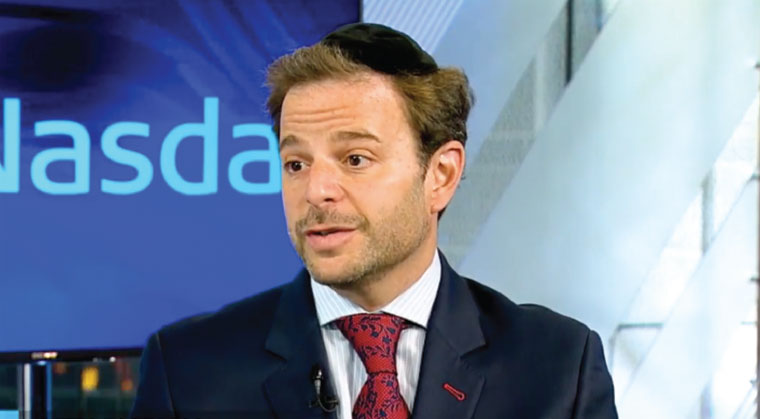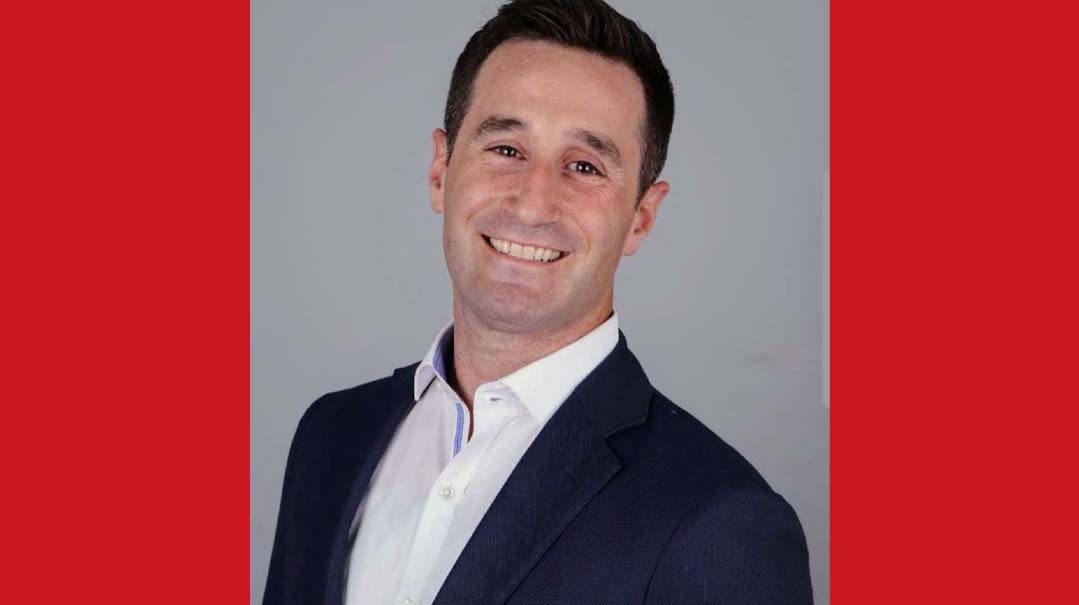Work/Life Solutions with Seth Farbman


Who Seth Farbman, cofounder and chairman of Vstock Transfer, Vcheck Global, and eSignatureGuarantee.
What After serving as a securities attorney in New York City, Seth became a serial entrepreneur building businesses that service private and public companies. He was the cofounder and president of Vintage Filings, servicing more than 3,000 publicly traded companies and providing SEC EDGAR filings and financial print services. It sold to PR Newswire in 2007. Seth was also a founding partner and cochairman of Vcorp Services, which sold to Wolters Kluwer in 2016, and he now runs Vstock Transfer, Vcheck Global, and eSignatureGuarantee.
Where Born and raised in Brooklyn, New York, Seth — a father of seven and grandfather of one — now lives in Woodmere with his wife and children. An active member of the Aish Kodesh community, Seth strives to lead a balanced life of Torah, chesed, business, and family (and basketball!).
Why When I heard Seth present at the TribeWorks conference in New York a few months ago, I was super impressed. As successful as he is, Seth remains a tremendous mensch: approachable, funny, modest, and learned (he got semichah two years ago), and he’s genuinely motivated to help others succeed. His favorite business book is The Go-Giver (which itself speaks volumes), and he instantly sent me a free copy when I expressed interest in learning more. I’m confident you’ll find humor and value in this interview, and I recommend connecting with him on LinkedIn to follow his adventures.
1 of 9 What opportunities or personalities played a role in your career?
Not many people can pinpoint the start of their career to talking at shul. Oh, I guess I should clarify….
I was talking outside of shul, not inside. In April 2002, I was at my in-laws in Teaneck, New Jersey, for Pesach. During Yizkor, I was standing in the hallway and a friend of the family, Shai Stern, struck up a conversation. He started with a simple question to fill that awkward five minutes of wait time: “What do you do?”
“I do something called SEC EDGAR filings for publicly traded companies.”
He said, “I used to sell stock-option plans to public companies. We should follow up after Yom Tov.” Yeah, sure, I thought.
Anyone who knows my dear friend and partner of 16 years shouldn’t be surprised that he e-mailed five minutes after Havdalah. We met at his house the next morning at 8:00 a.m., and by 8:10, we had agreed to start Vintage Filings as a 50–50 partnership. He would bring in the business and I would handle operations. Within five minutes, we agreed to call the venture Vintage Filings simply because there was a bottle of Vintage Seltzer on the table; within five years, we served more than 3,000 customers and had more than 100 employees.
From that day on, I took upon myself each and every Yizkor to find a corner, say Tehillim, and convey to Hashem my personal hakaros hatov for allowing my conversation with Shai to blossom into a career, multiple corporate ventures, and a longtime friendship filled with Torah, tzedakah, and admiration.
4 of 9 What was your most resounding failure? What did you take away from that experience?
In theory, I should learn from my mistakes. I’ve had several business failures, but at the top of the “I’ll know for next time” list is recognizing that not every great idea makes money.
A long, long time ago — back in the olden days, before the first app launch in July 2008 — I launched a company called WeightView. It was a site where someone could upload a photo of themselves, indicate how much weight they wanted to lose, and our platform would send them a digitized photo of themselves at their desired weight goal.
The service was free. And the media coverage was overwhelming — the company was featured on all the media outlets, we were in touch with several celebrities, and we started working with Nutrisystem. When it was featured on a morning talk show, we received 10,000 uploads in 60 seconds, crashing the server! Amazing!
Until I decided to charge a fee for the service. At that point, the only thing I heard was crickets. No one signed up, and shortly thereafter I shut down the business. It was frustrating, not only because of the money lost, but because everyone said it was an amazing idea. Those who saw their after-photos said they inspired them tremendously. But it didn’t matter. Not every great idea makes money.
A great idea is only one small ingredient in the formula of a successful company. After you have the aha moment, ask yourself: Is there enough of an audience willing to pay for this product or service?
On to my next mistake…
5 of 9 If you were granted an extra three hours per day or a spare million dollars, what would you do with that time or money?
At first glance, this question seems to be a pretty interesting sci-fi and an unreal hypothetical. Then it occurred to me that we actually make this three-hour extension a reality. Can someone explain the phenomenon that when Shabbos starts at 4 p.m., most of us rush home from work, do our preparations, and make it to shul on time with only seconds to spare, yet when Shabbos starts three hours later at 7 p.m., the same challenges exist? What happened to the extra three hours?!
So what would I do with the extra three hours? Use them for the same activity occupying many of us parents: carpool!
Seriously, if I had an extra three hours in my day, I don’t know the exact mathematical division of how I would use them — part toward chesed, some toward parnassah, an extra shiur or chavrusa or family time — but I would treat those hours as I try to treat my existing 24 hours: by being productive and making them count.
Time is too precious to not be used productively. Rav Moshe Weinberger has spoken to our kehillah at Aish Kodesh about how terrible the expression “killing time” is.
I think I’d request that my magical three hours be available for use in bits and pieces. I can use an extra 20 minutes to complete a shiur I’m enjoying; perhaps ten more minutes to close a business deal; another 30 minutes toward my son’s Gemara homework or if my eight-year-old daughter’s bedtime story needs an extra few minutes to get to the good part where the king gives the villagers three more hours in their day.
8 of 9 How do you navigate the tension between your deepest values and the business world?
Every frum entrepreneur may have their own conflicts between Jewish values and the business arena. Some are external and some internal. When people commented to me that it was a kiddush Hashem to wear a yarmulke when ringing the NYSE opening bell or the NASDAQ closing bell, or appearing with Steve Forbes on Fox Business, to me it was an undeserved compliment since it would never enter my mind to do otherwise.
On the inside, however, I’m somewhat embarrassed to share the following story, but I feel the message of gam zu l’tovah is valuable.
Early in my career, on the second day of Pesach, my mind “may” have accidentally wandered to work. Like a lightning bolt, I suddenly remembered that I scheduled an 11 a.m. call with a prospective client. Not just any client, but the entire Board of Directors of Carnival Cruise Line, a $33 billion company! I panicked. I started thinking, perhaps I could go home and have the babysitter dial into the conference call to tell them I can’t make it? I started a quick one-way conversation in my head about the halachos of amira l’nachri with the argument that it’s not really a benefit to me — it’s more a benefit for them. Then I moved onto the “It’s the second day of Yom Tov” argument… all of which took place in my head within 20 seconds, until I said “Stop!”
Yes, it will not be pleasant to have the entire board of a publicly traded company sit on the phone for several minutes, get frustrated, and then hang up, but I said to myself, “Hashem will handle it. Perhaps they’ll even award the business to my firm because they recognize that I respected my Jewish values!”
When I called the CFO the following day, he conveyed the message that I shouldn’t bother to ever call back. We never did win that account. But that’s the importance of the lesson I learned. Gam zu l’tovah in business is not always that it will work out as I want, but that it will work out the way it was meant to be, as Hashem orchestrates it. And for the record, I haven’t taken any cruises since.
9 of 9 If you were advising a young man/woman hoping to launch a career as an entrepreneur, which “dos” and “don’ts” would you share?
I don’t feel like I’m in a position to outline the dos and don’ts since I see that sometimes the inherent success of an entrepreneur stems from doing things in a way that everyone else said not to, and not doing things most people would say they should! However, here are some general points I continue to tell myself:
Surround yourself with good people. That is, trustworthy, honest people who bring positive energy to the table every day. Sometimes working with a good attitude, enthusiasm, and optimism is as vital as the product or service you sell.
Regardless of your business, view yourself as a media company. If you’re an attorney, an accountant, CEO of a start-up, or founder of a large corporation, you’re selling yourself, your firm, your brand, your reputation.
Networking is underutilized. Meaningful relationships and contacts in the business arena are some of the most valuable assets you can build.
The support of your spouse is invaluable. I would never have gotten out of the gate and to where I am today without my wife believing in me and her support and encouragement through the ups and downs (and downs and downs). Thank you, Zahava.
(Originally featured in Mishpacha, Issue 746)
Oops! We could not locate your form.













